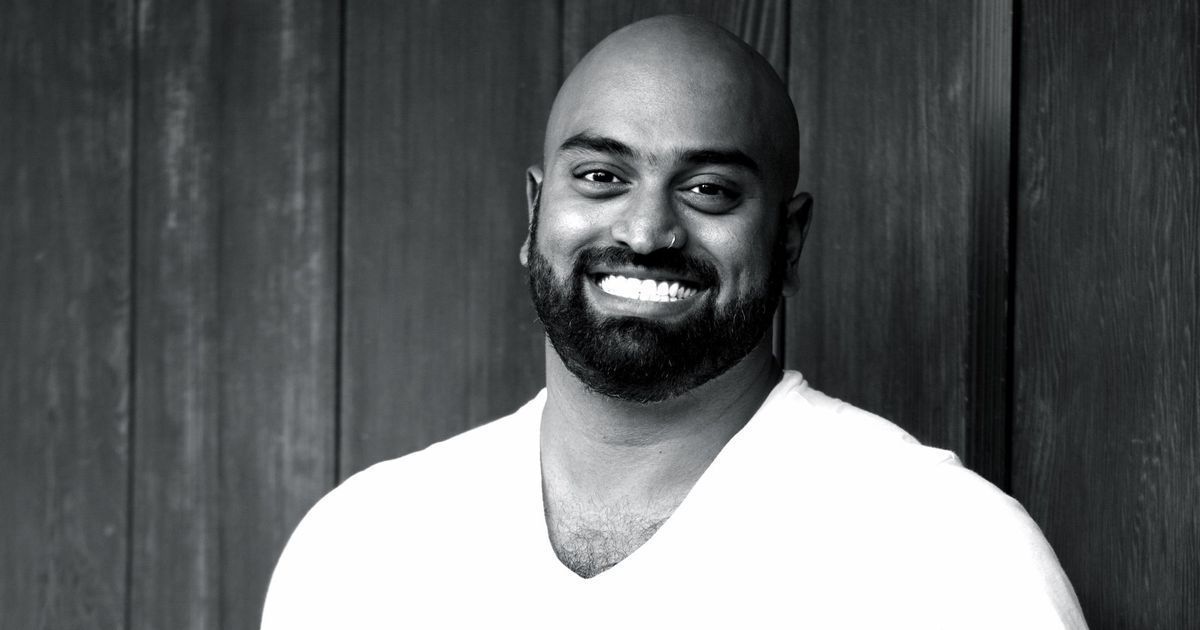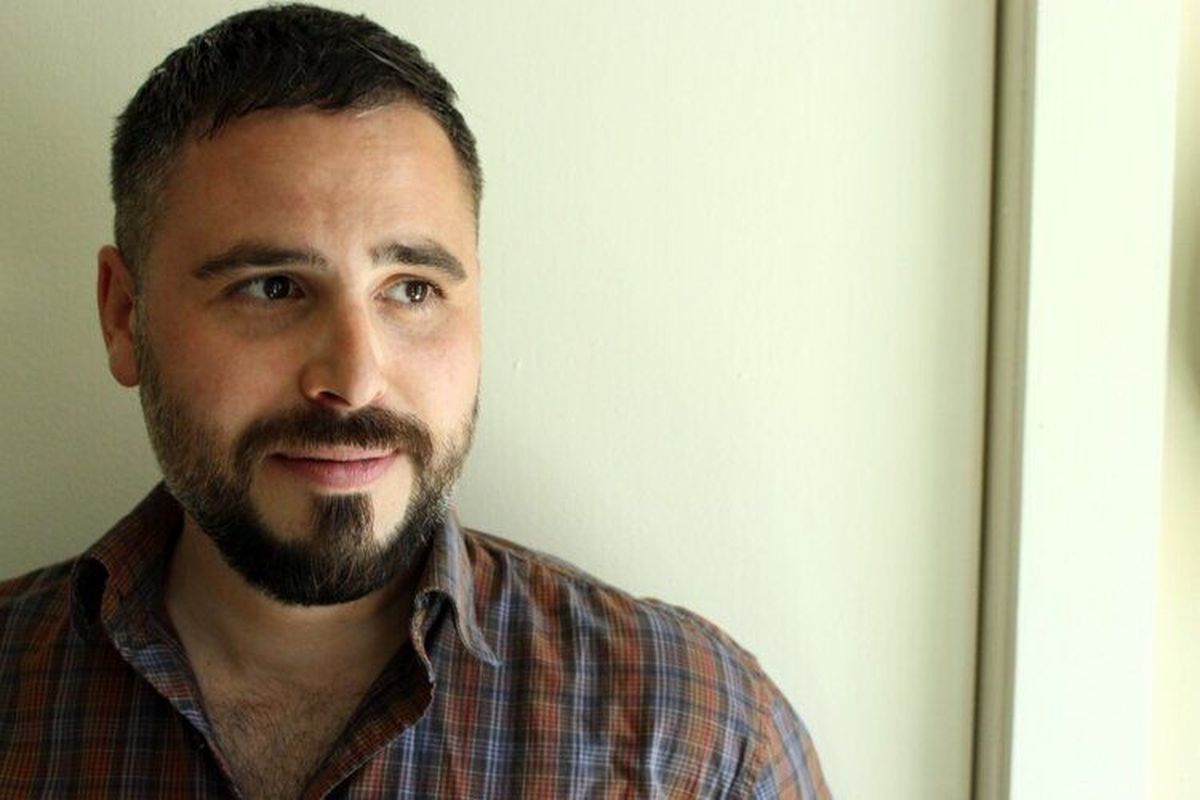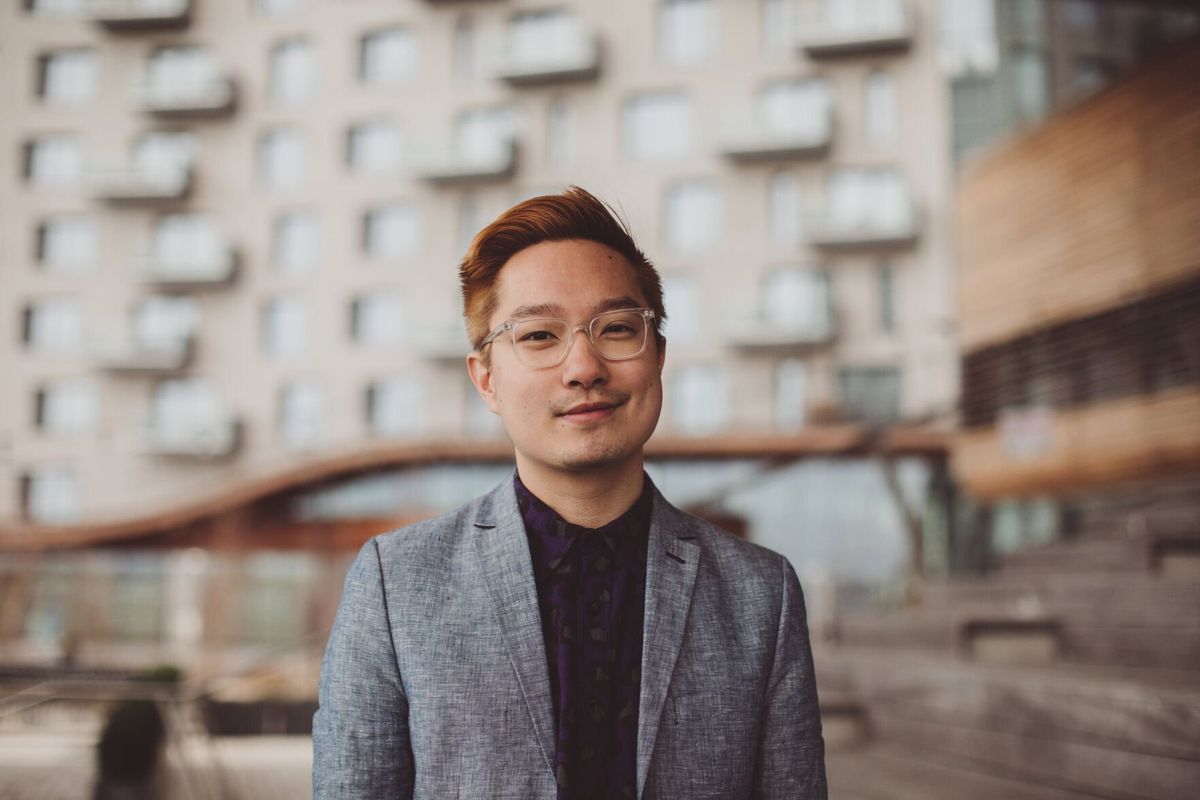Tobias Wray, Rajiv Mohabir and Chen Chen discuss queer poetry during Get Lit!
Chen Chen (Courtesy)
In 2020, Vietnamese American poet Ocean Vuong’s words resonated with millions of queer readers, poets and everyone in and out of the literary world during an A24 interview with American fiction writer Bryan Washington, in which he discussed being gay.
“Often, we see queerness as a deprivation, but when I look at my life, I saw that queerness demanded an alternative innovation from me, I had to make alternative routes. It made me curious, it made me ask this is not enough for me because there’s nothing here for me,” Vuong said.
Within that alternative lies brilliance, a colorful life that relies on sifting through common hardships of queerness such as homophobia and dehumanization, relying on the arts to revitalize one’s life.
On April 22, three queer poets, Tobias Wray, Rajiv Mohabir and Chen Chen, replenished those wells with a poetry reading at the Northwest Museum of Arts and Culture, part of the Get Lit! festival hosted by Eastern Washington University. The reading then moved on to a discussion about the state and future of queer poetry.
“I’m really happy to bring this to the community after so long and so much time away,” said Kate Peterson, organizer of the Get Lit! event. This was the first in-person event since the COVID-19 lockdown. “Diversity is important to our festival … so we’re thinking about the queer community and making sure we have writers that reflect that community.”
Wray’s work beautifully relies on memory and the responsibility of “redefining and reimaging what masculinity looks like” and its potential to be less violent and affirming. Wray’s poems, including his anthology “No Doubt I Will Return a Different Man,” capture how his physical changes embody his goals, including poems about his childhood in Arkansas.
With the goal of restructuring masculinity, Wray’s poem’s are infused with academic works of psychobiologists who study the inner workings of human behavior. He references studies from the book “A General Theory of Love” by Thomas Lewis, Fari Amini and Richard Lannon.
“I’ve always been interested in the limbic brain as this seed of maternity, of caring, of love and the messy complication because of those things that we create,” Wray said, explaining the creation of his poem “Each of Us Chimera.”
Mohabir captivated the audience with his use of interpreting the natural world around him and the tension with societal measures. He shared his experiences of coming out and losing conservative relatives. However, his grandmother’s question of “What can stop a river from running?” shifted his perception. He also read a poem in the language spoken by his paternal grandmother, who was the descendant of sugarcane workers in Guyana, from his award-winning book “Antiman.”
“My grandmother was a master of the many languages she spoke, but she imbued in me a love and respect for poems.” Mohabir said.
Mohabir’s colorful work thrives on love and respect as his bright voice captivates his audience. He included stories in his native Indian language, which, in poetry, serves as a way to reinvent the relationship with home and the native tongue. It creates a relatable intimacy with the self.
Chen Chen’s voice is a delicacy, a smoother, creamier tone that sweetens each dreamy metaphor that paints into his inner worlds clearly. He has mastered being foxy and bewildering, building a sense of companionship with his audience. EWU professor and poet Jonathan Johnson served as the moderator and read a few words on behalf of his students, who took part in selecting the poets.
“The imagery was so deep and entangling, I felt like a 13-year-old sitting in a tree wishing for a boy to come and kiss me,” Johnson restated.
“His collections of poems were fabulously refreshing, deeply intimate with a granularity that we can all find in our own lives. I love the way Chen Chen holds our hand through the many challenges he faced finding himself and along the way made us feel a part of it.”
Absolutely hilarious, Chen reflected on some of the shiniest topics within queer culture from a self-deprecating, dry tone of voice and killer comedic timing.
He read some popular poems from his first book, “When I Grow Up I Want to Be a List of Further Possibilities,” which was on the long list for the 2017 National Book Award.
“Once, in a Starbucks, the cashier / was convinced I was Chad. Once, in a Starbucks, the cashier / did not quite finish the n on my Chen, & when my tall mocha was ready / they called out for Cher. I preferred this by far.” Chen read from his piece “Nature Poem,” which tickled the audience.
He also gifted readers with poems from his freshly edited, forthcoming book “In Cahoots With the Rabbit God.” Though fluent in sarcasm, Chen discussed deadly homophobia with a poem dedicated to the victims of the Pulse nightclub shooting massacre, in which 50 people were killed in Orlando in 2016.
When discussing the state of queer poetry, Wray moderated the conversation between Mohabir and Chen. All poets acknowledged the rampantly evolving space, yet it’s undeniable history. Sometimes, since queer poetry is still solidifying itself, academic approaches and jargons can muddy up spaces with technological terms, whereas the magic and freedom of poetry helps those experiences thrive.
Also, since everyone arrives at queerness differently, how can one have an exact definition? Poetry revokes the either-or dynamic, which is also pushed by what Chen calls the “white, normative gaze.”
“Queer is outside of that thing that you can just point at and say ‘this is queer’ because someone once said ‘queerness is on the horizon,’ ” Mohabir said. “We can only understand queerness by looking backwards … poetry takes the temperature of that conversation.”
Another topic discussed was the experience of including intimate moments surrounding sexuality and family. Examining these areas can lead to “self-questioning” after how much personal, familial information can serve as reference in poetry.
The poets shifted the conversation to creating a collective, cultural memory and preserving history in light of queer poetry’s future. As the world moves into a sex-positive atmosphere, will sex poems still be a driving force in queer poetry?
”I think my own happiness is important … and writing about gay sex makes me happy,” Chen said. “But I am very aware of the white gaze, so I do factor that in in terms of assumptions about what ‘kind of Asian’ my parents were like, so there’s a lot I don’t actually include, as well. It’s very curated. I decide what I share, even I am oversharing.”


